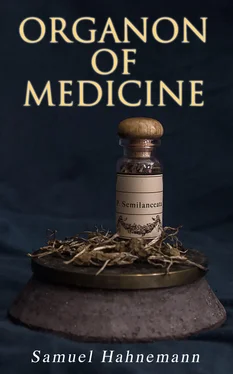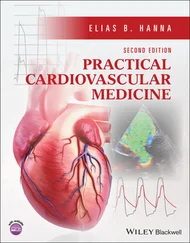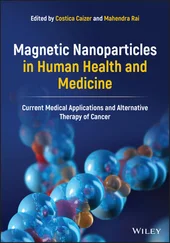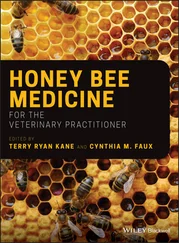2.Homoeopathy sheds not a drop of blood, administers no emetics, purgatives, laxatives or diaphoretics, drives off no external affection by external means, prescribes no hot or unknown mineral baths or medicated clysters, applies no Spanish flies or mustard plasters, no setons, no issues, excites no ptyalism, burns not with moxa or red-hot iron to the very bone, and so forth, but gives with its own hand its own preparations of simple uncompounded medicines, which it is accurately acquainted with, never subdues pain by opium, etc.
Table of Contents
Review of the therapeutics, allopathy and palliative treatment that have hitherto been practiced in the old school of medicine.
As long as men have existed they have been liable, individually or collectively, to diseases from physical or moral causes. In a rude state of nature but few remedial agents were required, as the simple mode of living admitted of but few diseases; with the civilization of mankind in the state, on the contrary, the occasions of diseases and the necessity for medical aid increased, in equal proportion. But ever since that time (soon after Hippocrates, therefore, for 2500 years) men have occupied themselves with the treatment of the ever increasing multiplicity of diseases, who, led astray by their vanity, sought by reasoning and guessing to excogitate the mode of furnishing this aid. Innumerable and dissimilar ideas respecting the nature of diseases and their remedies sprang from so many dissimilar brains, and the theoretical views these gave rise to the so-called systems, each of which was at variance with the rest and self-contradictory. Each of these subtile expositions at first threw the readers into stupefied amazement at the incomprehensible wisdom contained in it, and attracted to the system-monger a number of followers, who re-echoed his unnatural sophistry, to none of whom, however, was it of the slightest use in enabling them to cure better, until a new system, often diametrically opposed to the first, thrust that aside, and in its turn gained a short-lived renown. None of them, however. was in consonance with nature and experience; they were mere theoretical webs, woven by cunning intellects out of pretended consequences, which could not be made use of in practice, in the treatment at the sick-bed, on account of their excessive subtilty and repugnance to nature, and only served for empty disputations.
Simultaneously, but quite independent of all these theories, there sprung up a mode of treatment with mixtures of unknown medicinal substances for forms of disease arbitrarily set up, and directed towards some material object completely at variance with nature and experience, hence, as may be supposed, with a bad result – such is old medicine, allopathy as it is termed.
Without disparaging the services which many physicians have rendered to the sciences auxiliary to medicine, to natural philosophy and chemistry, to natural history in its various branches, and to that of man in particular, to anthropology, physiology and anatomy, etc., I shall occupy myself here with the practical part of medicine only, with the healing art itself, in order to show how it is that diseases have hitherto been so imperfectly treated. Far beneath my notice is that mechanical routine of treating precious human life according to the prescription manuals, the continual publication of which shows, alas! how frequently they are still used. I pass it by unnoticed, as a despicable practice of the lowest class of ordinary practitioners. I speak merely of the medical art as hitherto practiced, which, pluming itself on its antiquity, imagines itself to possess a scientific character.
The partisans of the old school of medicine flattered themselves that they could justly claim for it alone the title of ‘rational medicine’, because they alone sought for and strove to remove the cause of disease, and followed the method employed by nature in diseases.
Tolle causam! they cried incessantly. But they went no further than this empty exclamation. They only fancied that they could discover the cause of disease; they did not discover it, however, as it is not perceptible and not discoverable. For as far the greatest number of diseases are of dynamic (spiritual) origin and dynamic (spiritual) nature, their cause is therefore not perceptible to the senses; so they exerted themselves to imagine one, and from a survey of the parts of the normal, inanimate human body (anatomy), compared with the visible changes of the same internal parts in persons who had died of diseases (pathological anatomy), as also from what they could deduce from a comparison of the phenomena and functions in healthy life (physiology) with their endless alterations in the innumerable morbid states (pathology, semeiotics), to draw conclusions relative to the invisible process whereby the changes which take place in the inwardbeing of man in diseases are affected – a dim picture of the imagination, which theoretical medicine regarded as its prima causa morbi;1 and thus it was at one and the same time the proximate cause of the disease, and the internal essence of the disease, the disease itself – although, as sound human reason teaches us, the cause of a thing or of an event, can never be at the same time the thing or the event itself. How could they then, without deceiving themselves, consider this imperceptible internal essence as the object to be treated, and prescribe for it medicines whose curative powers were likewise generally unknown to them, and even give several such unknown medicines mixed together in what are termed prescriptions?
1. It would have been much more consonant with sound human reason and with the nature of things, had they, in order to be able to cure a disease, regarded the originating cause as the causa morbi, and endeavored to discover that, and thus been enabled successfully to employ the mode of treatment which had shown itself useful in maladies having the same exciting cause, in those also of a similar origin, as, for example, the same mercury is efficacious in an ulcer of the glans after impure coitus, as in all previous venereal chancres – if, I say, they had discovered the exciting cause of all other (non-venereal) chronic diseases to be an infection at one period or another with the itch miasm (psora), and had found for all these a common method of treatment, regard being had for the peculiarities of each individual case, whereby all and each of these chronic diseases might have been cured, then might they with justice have boasted that in the treatment of chronic diseases they had in view the only available and useful causa morborum chronicorum (non venereorum), and with this as a basis they might have treated such diseases with the best results. But during these many centuries they were unable to cure the millions of chronic diseases, because they knew not their origin in the psoric miasm (which was first discovered and afterwards provided with a suitable plan of treatment byhomoeopathy), and yet they vaunted that they alone kept in view the prima causa of these diseases in their treatment, and that they alone treated rationally, although they had not the slightest conception of the only useful knowledge of their psoric origin and consequently they bungled the treatment of all chronic diseases!
But this sublime problem, the discovery, namely, a priori, of an internal invisible cause of disease, resolved itself, at least with the more astute physicians of the old school, into a search, under the guidance of the symptoms it is true, for what might be supposed to be the probable general character of the case of disease before them;2 whether it was spasm, or debility, or paralysis, or fever, or inflammation, or induration, or obstruction of this or that part, or excess of blood (plethora), deficiency or excess of oxygen, carbon, hydrogen or nitrogen in the juices, exaltation or depression of the functions of the arterial, venous or capillary system, change in the relative proportion of the factors of sensibility, irritability or reproduction., – conjectures that have been dignified by the followers of the old school with the title of causal indication, and considered to be the only possible rationality in medicine; but which were assumptions, too fallacious and hypothetical to prove of any practical utility – incapable, even had they been well grounded, of indicating the most appropriate remedy for a case of disease; flattering indeed, to the vanity of the learned theorist, but usually leading astray when used as guides to practice, and wherein there was evidenced more of ostentation than of an earnest search for the curative indication.
Читать дальше












